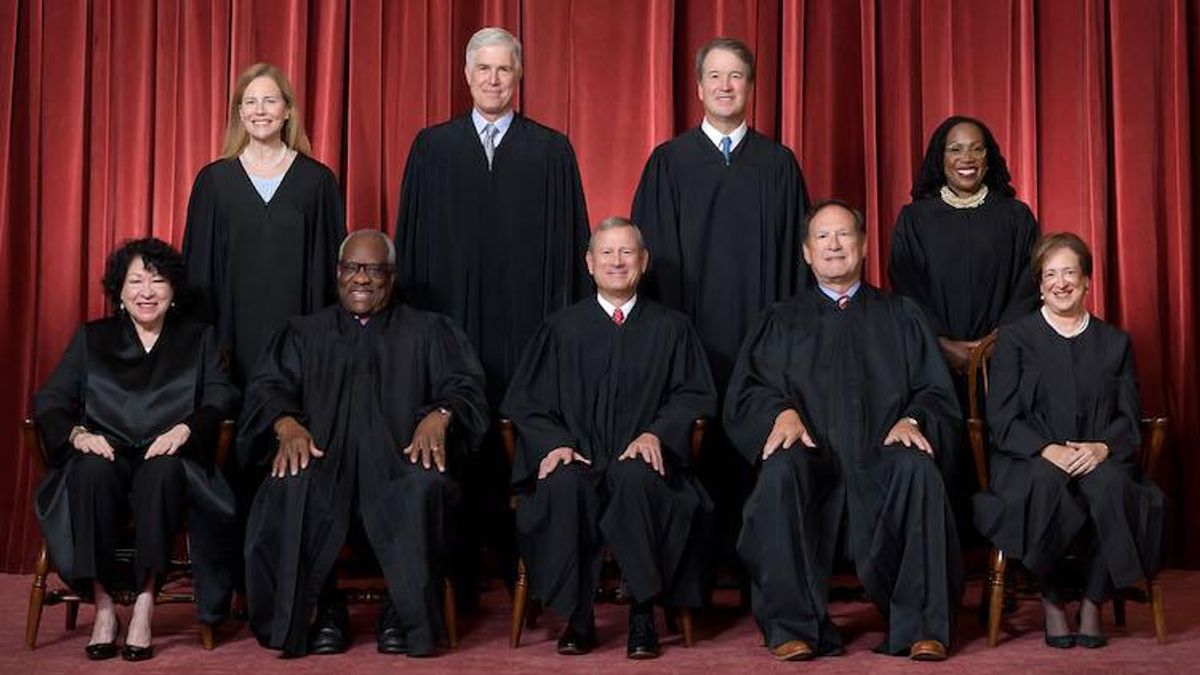
Supreme Court Justices Question TikTok's Free Speech Claims Amid Ban Concerns
The Supreme Court on Wednesday heard oral arguments in a case involving TikTok, the popular Chinese-owned video-sharing app, and the Trump administration's attempt to ban the app in the United States. The justices grappled with complex questions about free speech, national security, and the role of the courts in reviewing executive branch actions.
Background of the Case
In August 2020, the Trump administration issued an executive order declaring that TikTok posed a national security threat and ordering it to divest its US operations. The order was based on concerns that the Chinese government could use TikTok to collect data on American users or to spread propaganda.
TikTok challenged the order in court, arguing that it violated the First Amendment. A federal judge blocked the order, and the Ninth Circuit Court of Appeals upheld the injunction. The Trump administration appealed to the Supreme Court, which agreed to hear the case.
Oral Arguments Before the Supreme Court
During oral arguments, the justices appeared skeptical of the Trump administration's national security claims. Justice Stephen Breyer questioned whether the government had presented sufficient evidence to justify banning the app. Justice Brett Kavanaugh suggested that the government could pursue narrower measures to address its concerns, such as requiring TikTok to disclose its data collection practices or to submit to independent audits.
The justices also expressed concern about the impact of a ban on TikTok users' First Amendment rights. Justice Sonia Sotomayor noted that TikTok is a popular platform for free expression, particularly among young people. Justice Elena Kagan suggested that the government could explore less restrictive alternatives to a ban, such as requiring TikTok to label content that is generated by state-controlled media.
Perspectives on the Case
The case has drawn attention from a wide range of stakeholders, including free speech advocates, national security experts, and technology companies. Free speech advocates argue that the Trump administration's ban is an unconstitutional attempt to silence a popular platform for political dissent. National security experts, on the other hand, argue that TikTok poses a legitimate threat to national security and that the government has a duty to protect its citizens from foreign interference.
Technology companies are also watching the case closely, as it could have implications for their own businesses. TikTok is one of the most popular apps in the world, and a ruling against the company could create a precedent for government regulation of other social media platforms.
Legal Precedents and Relevant Research
The Supreme Court's analysis of the case is likely to be guided by a number of legal precedents, including the "strict scrutiny" standard that applies to government restrictions on speech. Under this standard, the government must demonstrate a compelling interest for restricting speech, and the restriction must be narrowly tailored to achieve that interest.
Research on the national security risks posed by TikTok is mixed. Some studies have found that TikTok collects data on its users that could be used for surveillance or propaganda. Other studies have found that the app does not pose a significant national security threat.
Conclusion
The Supreme Court's decision in the TikTok case is likely to have a significant impact on the future of free speech and national security in the digital age. The justices' questions during oral arguments suggest that they are skeptical of the Trump administration's national security claims and are concerned about the impact of a ban on TikTok users' First Amendment rights.
The case is also likely to have implications for other social media platforms, as it could create a precedent for government regulation of online speech. The Supreme Court's decision is expected to be issued in the coming months.

Comments
Post a Comment